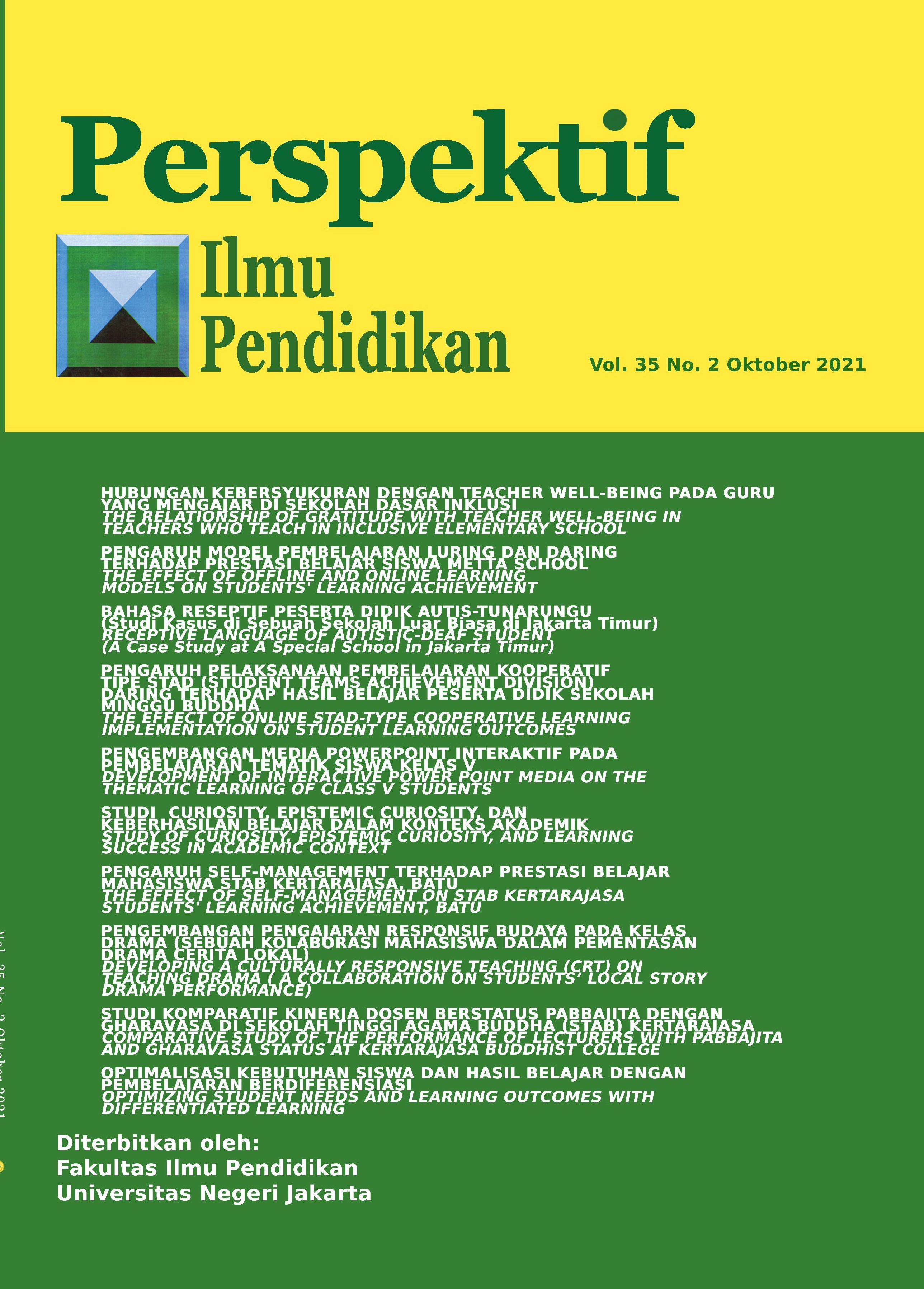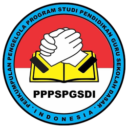the THE EFFECT OF STAD TYPE COOPERATIVE LEARNING MODEL ON THE LEARNING OUTCOMES OF VIHARA DHAMMAPHALA SUNDAY SCHOOL- TANGERANG
DOI:
https://doi.org/10.21009/PIP.352.4Abstract
This research was conducted based on the low value of the learning outcomes of Vihara Dhammapala Sunday school. The low learning outcomes are due to several factors, one of which is the ineffective learning model, therefore the existence of the Student Teams Achievement Divisions (STAD) learning model is one of the cooperative learning models in which there are several groups of students with different levels of academic ability. work together to realize learning objectives. This study aims to determine the effect of the STAD cooperative learning model on the learning outcomes of students at the Dhammaphala Vihara Sunday School. The design used in this research is in the form of an experiment with a quantitative approach. The instruments used in this study were questionnaires, documents and interviews. The questionnaire was distributed to 20 students. The data that has been obtained from the distribution of questionnaires were analyzed using the Likert scale and the learning outcomes of the pretest and posttest were analyzed using the paired t test. The results of this study indicate that the STAD learning model has a very strong effect on the learning outcomes of Buddhism, when viewed from the percent achievement of 91.75% then from the response evaluation answers with a total score of 1468 and a percent achievement of 91.81%. Furthermore, based on the paired t test the values before and after Dhammaphala Vihara Sunday School with a score of 14.82 turned out to be very significant with an average difference of 17.55. So, STAD learning model greatly enhances the value of learning outcomes at the Vihara Dhammaphala sunday school.
Downloads
Published
How to Cite
Issue
Section
License
Authors who publish with this Journal agree to the following terms:
- Author retain copyright and grant the journal right of first publication with the work simultaneously licensed under a creative commons attribution licensethat allow others to share the work within an acknowledgement of the work’s authorship and initial publication of this journal.
- Authors are able to enter into separate, additional contractual arrangementfor the non-exclusive distribution of the journal’s published version of the work (e.g. acknowledgement of its initial publication in this journal).
- Authors are permitted and encouraged to post their work online(e.g. in institutional repositories or on their websites) prior to and during the submission process, as it can lead to productive exchanges, as well as earlier and greater citation of published works.
-
Users/public use of this website will be licensed to CC BY-NC-SA Creative Commons Attribution-NonCommercial-ShareAlike 4.0 International License












